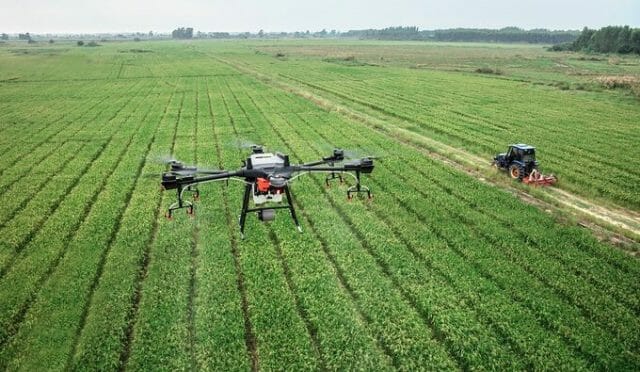
A farmer’s job is challenging and demands time, money, and skill. It takes hard work to ensure that the land will continue to produce crops. Farms require a large amount of detail to be recorded. There is a need for record-keeping, machinery, and field management. Besides, they need to track the amount of water plants have absorbed and how much they’ve used is vital to prevent drought or over-watering. Also, farmers need a way to organize their tasks and optimize their work schedules. This can be done with by using proper farming tools and leveraging on technology.
Here’s are six tools that every farmer needs
Proper farm management software
Farmers need proper management tools to streamline their operations. Management software helps in various sectors such as planning labor on the farm, planting programs, harvesting, and marketing. It can track which crops to grow at each season and the amount of fertilizer or pesticides are required for each crop. This is useful in developing a cost-effective business plan and keeping track of the latest farming techniques. Farmers require digital tools to help them keep track of the latest farming trends to help them market their products.
Proper irrigation systems
Farmers need to use proper irrigation systems to ensure that their plants are well watered while keeping the farm organized. Different types of efficient irrigation systems allow farmers to manage how and when their crops get irrigated, such as drip and sprinkler irrigation.
A fertilizer and pest management plan
Farmers need to create a fertilizer and pest management plan to minimize pesticides and increase crop quality. This includes applying organic compost, cover crops, crop rotations, and other techniques. Farmers can also use tools like nutrient monitoring, which analyses the soil’s chemical composition to determine what nutrients are needed for certain crops.
Proper harvesting tools
Harvesting is a time-consuming process, and many farmers spend a significant amount of time harvesting. The right tools can help make the process faster and more manageable. One tool that can help is a bin with a door that swings open from the side or front. This allows the farmer to focus on pulling crops quickly rather than climbing over items to get to what’s in the back of the bin. It also makes for more effortless loading and unloading. Proper alignment is another crucial aspect that farmers can achieve by using markers on all four sides of their fields.
Proper farming equipment
A farmer’s success depends on the proper use of farming equipment. Proper irrigation, tillage, and fertilization will depend on the specific type of plants you are growing. Different machinery is needed to harvest the crops and maintain the grounds around the farm. Many pieces of equipment are also required for animal care, such as shears, scales, and crates.
As farmers get more accustomed to the farming process and learn new techniques, they may want to upgrade their machinery. This might include buying a larger tractor that is more efficient, investing in solar power, and adding water storage equipment.
Farm management trends
Farmers are increasingly turning to organizational tools to help manage their farms. Farmers use software, apps, and other digital platforms to coordinate tasks on the farm, monitor data, and keep up with production. Many farming apps are integrated with GPS mapping technology to collect farm crop data.
Farmers know that it is difficult to keep top of all the latest farming trends and techniques. Luckily, there are now several resources for them to do this. Data analysis resources can help farmers track essential details about their farms, like how much water they’ve used throughout the season or how many products they’ve produced. This can help them make better decisions about their farming practices, potentially saving them money.
How they can help farmers with their farm operations
Farmers have a lot of projects to take care of daily. It’s not uncommon for farmers to fall behind on important tasks because they’re too busy with other things. That’s where organization comes in. With farm management software, farmers can keep track of all their different expenses and assets and make sure that they stay on top of them. They’ll never miss an important payment again, and at the end of the day, they’ll be able to see how well their farm is running and know that all tasks are being taken care of.
The Future of Farm Data
There is still a lot of work to be done in the data analysis field. For example, the amount of data produced by farms will continue to grow because newer technology will allow for more sensors and better communication methods. The more detailed information that farmers have about their crops, the better they can adapt their farming practices to fit the needs of their crops. This will allow them to more strategically use their resources and make better-informed decisions about the best ways to farm.

